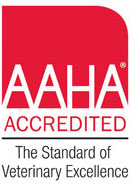Educational Articles
-
There are many types of emergencies, but initial care is similar: stay calm, keep your dog warm and quiet, contact your veterinarian, and get help to transport your pet to a veterinarian. Common emergencies are described including gastric dilatation and volvulus (GDV), acute hemorrhagic diarrhea, anaphylaxis, automobile injury, seizures, respiratory distress, eye injury, eclampsia, heatstroke, heart failure, toxin ingestion and collapse.
-
Epileptic seizures in pets are a diagnosis of exclusion and may be found in any dog but there may be some breed predispositions that are more common. The cause is often unknown. A variety of medications are available to help control the seizure activity if an underlying cause is not found.
-
Many liquid potpourri products and essential oils, including oil of cinnamon, citrus, pennyroyal, peppermint, pine, sweet birch, tea tree (melaleuca), wintergreen, and ylang ylang, are poisonous to cats. Both ingestion and skin exposure can be toxic.
-
Ethylene glycol, a sweet-tasting, odorless liquid, is the active ingredient in antifreeze. Ethylene glycol can also be found, in lower concentrations, in some windshield de-icing agents, hydraulic brake fluid, motor oils, solvents, paints, film processing solutions, wood stains, inks, printer cartridges. Ethylene glycol is poisonous to cats; immediate treatment is essential.
-
Ethylene glycol, a sweet-tasting, odorless liquid, is the active ingredient in antifreeze. Ethylene glycol can also be found, in lower concentrations, in some windshield de-icing agents, hydraulic brake fluid, motor oils, solvents, paints, film processing solutions, wood stains, inks, and printer cartridges. Ethylene glycol is poisonous to dogs: as little as half a teaspoon per pound of a dog's body weight can result in death. Immediate treatment is essential.
-
All glues containing isocyanate and diisocyanate can expand. Pets exposed to a very small amount of wet or liquid expanding glue may consume enough product to be problematic. Foreign body obstruction due to a mass of expanded glue in the stomach is the most common outcome in dogs ingesting expanding wood glues. After abdominal X-rays confirm the presence of a glue mass and obstruction, surgery is required to remove the mass, or endoscopy in mild cases. The prognosis for recovery from expanding glue ingestion depends on the removal of the mass.
-
Fading puppy syndrome describes puppies that decline in health and die within about two weeks of birth. Neonatal puppies are fragile and so there can be many causes of this syndrome including birth defects, inadequate care from the mother, poor health status of the mother and/or infectious diseases. As well as addressing a specific cause, treatment focuses on maintaining hydration and warmth while providing adequate nutrition. Environmental hygiene is extremely important.
-
Feline idiopathic cystitis (FIC) includes a set of clinical signs associated with abnormal urination and is the diagnosis when there is no identifiable cause of the clinical signs. Cats often suffer waxing and waning of symptoms such as straining to urinate, blood in urine, and inappropriate urination. Treatment and prognosis are discussed.
-
There are several common diseases or conditions that may affect the pet ferret. Like dogs, ferrets may get heartworms, distemper virus, heat stroke and a variety of cancerous conditions. Yearly veterinary health examinations are recommended to assess the presence or absence of any of the diseases listed above.
-
Usually caused by a bite from another cat, fight wound infections can lead to the development of an abscess (a pocket of pus) or cellulitis (pain and swelling in the area of the bite). A cat’s sharp canine teeth can easily puncture the skin of another cat, leaving small, deep, wounds that seal over quickly, so it is important that your cat is seen by a veterinarian for treatment as soon as possible after being bitten.

